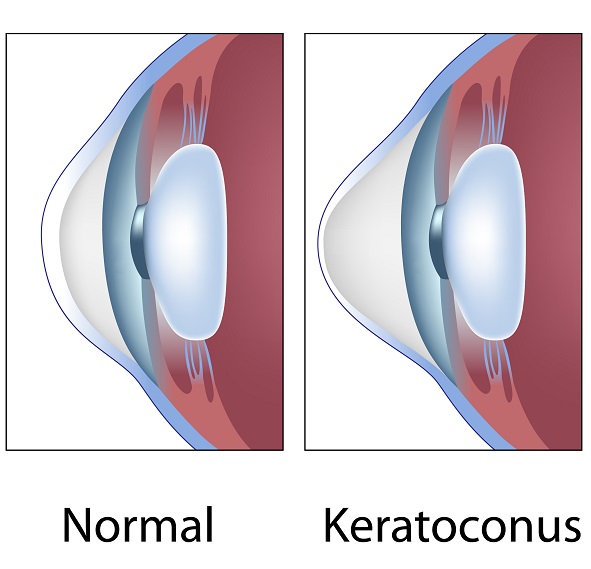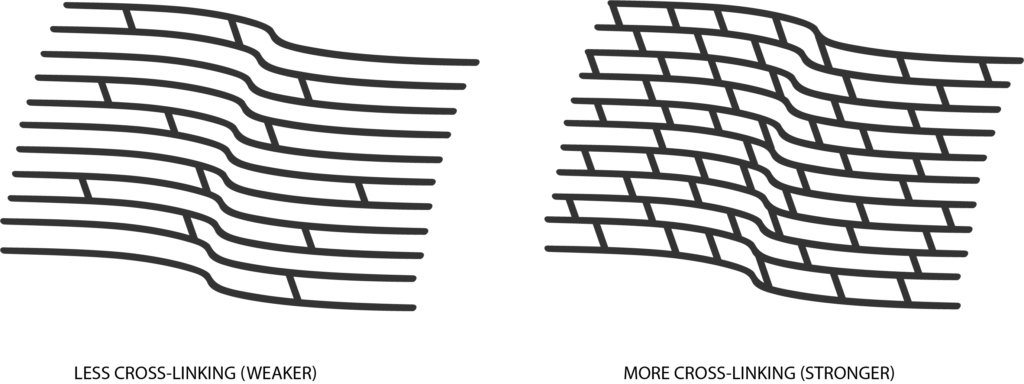
What is Keratoconus?
Keratoconus is an eye condition in which your cornea — the clear, dome-shaped front of your eye — gets thinner and gradually bulges outward into a cone shape. A cone-shaped cornea causes blurred vision and may cause sensitivity to light and glare. Keratoconus usually affects both eyes. With this misshaped cornea, it can distort your vision.
Symptoms
- Mildly blurred vision
- Frequent prescription changes
- Excessive eye rubbing
- Difficulty seeing at night
- Frequent Headaches
- Vision that cannot be fully corrected with glasses or contacts
Keratoconus, often referred to as “KC”, typically first appears in people who are in their late teens or early twenties but can affect older adults too. Each eye may be affected differently. The Cornea is responsible for focusing most of the light that comes into the eye. Therefore, abnormalities of the cornea, such as keratoconus, can have a major impact on how a person sees the world, making simple tasks such as driving a car or reading a book very difficult.
What is iLink Corneal Cross-Linking?
iLink corneal cross-linking is the only FDA-approved cross-linking treatment for progressive keratoconus. It is a minimally invasive outpatient procedure that combines the use of ultraviolet light and specially formulated eye drops to stiffen and strengthen the cornea that has been weakened by disease or refractive surgery. Corss-linking is considered the standard of care around the world for progressive keratoconus and corneal ectasia following refractive surgery.
Is iLink Covered by Insurance?
Is Cross-Linking Right for Me?
Patients who have been diagnosed with progressive keratoconus or corneal ectasia following refractive surgery should ask their doctor about iLink corneal cross-linking. Patients who once had little to no therapeutic options to treat keratoconus have the opportunity to slow or halt the progression of this sight-threatening disease.

P: 717 397 4724
F: 717 397 6687
Lititz Pike & Community Way: Monday – Friday, 8am-5pm
Ephrata Office: By appointment only